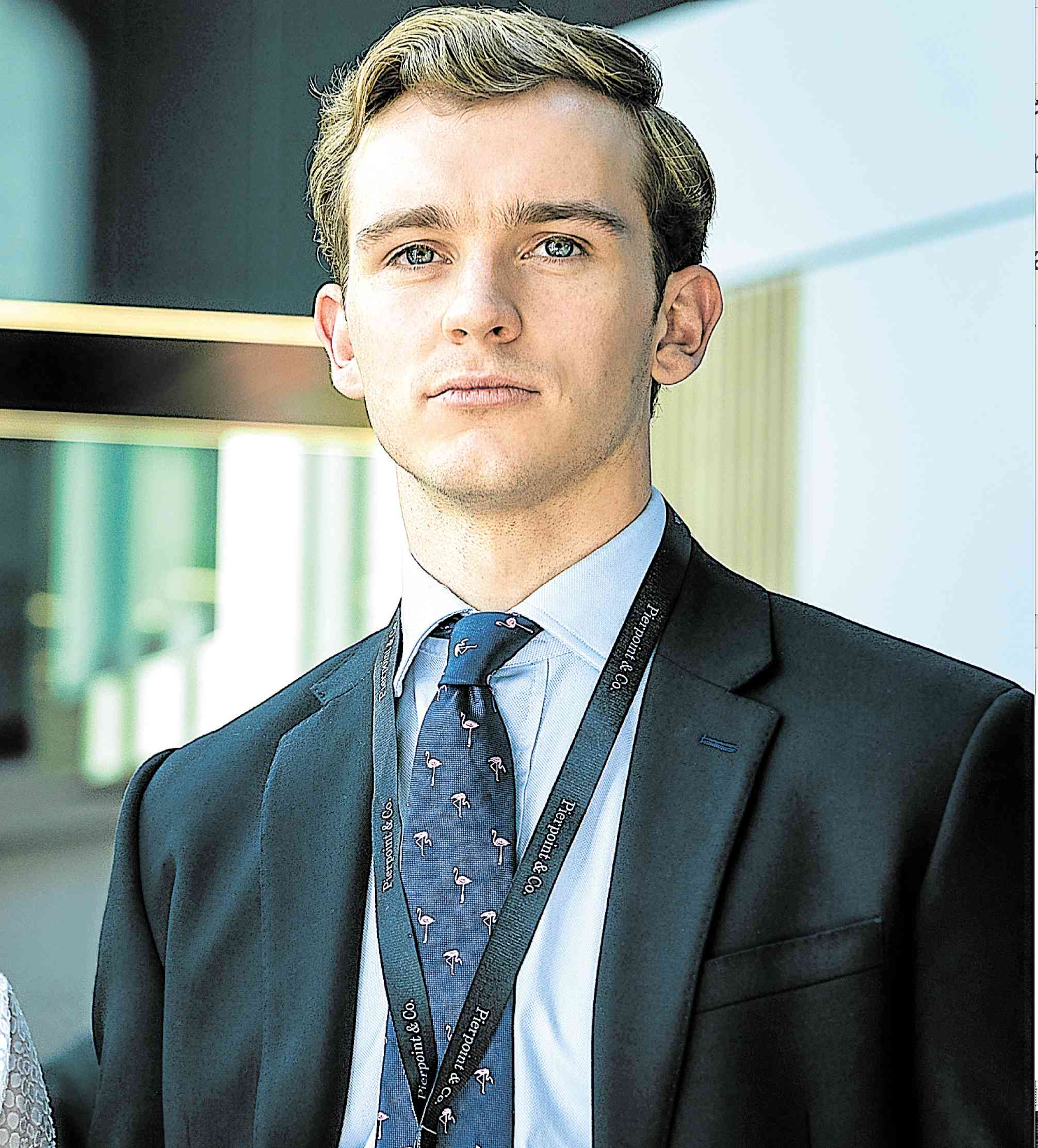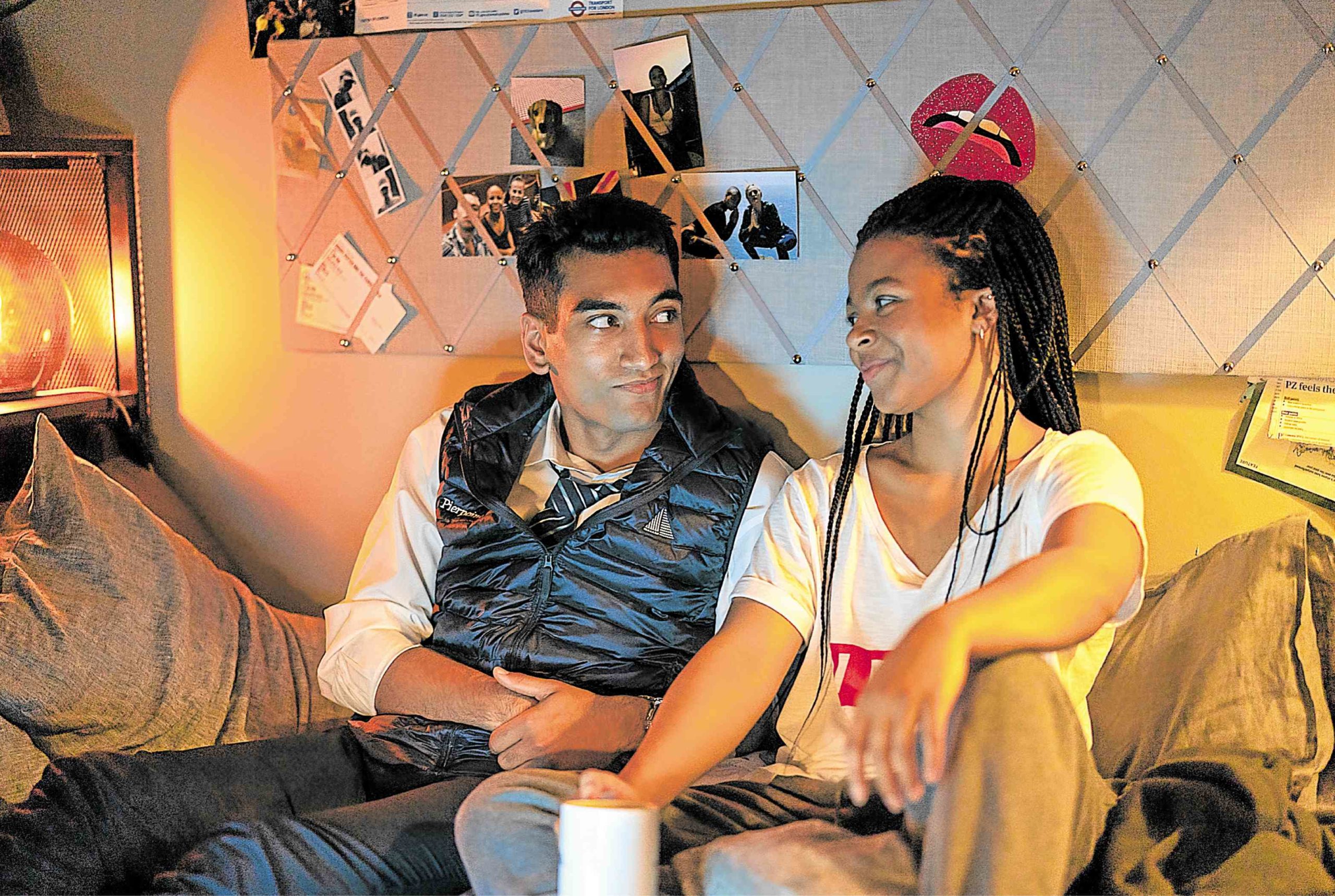‘Industry’: Harry Lawtey and David Jonsson get down to the nitty-gritty of banking

Exciting young cast of “Industry” (from left): Harry Lawtey, Myha’la Herrold, Marisa Abelo, David Jonsson and Nabhaan Rizwan —PHOTOS BY HBO
We were glad to be proven wrong when we watched the first half of the premiere season of the TV series, “Industry,” which launches at 11 a.m./11 p.m. on HBO and HBO Go today.
Truth be told, we couldn’t hide our initial trepidation with the idea of sitting through episodes of a story about the cutthroat world of banking and finance, then coming out of it more frazzled than dazzled.
As it turns out, the show, about ambitious, young people competing for a limited number of permanent positions over a six-month period at a leading international bank in London, is more compelling than its far-less-imaginative title suggests, thanks to characters that vivify the show’s views on race, gender, class, privilege, ambition, drug use and even sexual misconduct in the workplace. It’s boosted further by a quintet of charismatic leads that keep viewers engaged with hard-hitting portrayals.
Inquirer Entertainment recently attended a video meet-and-greet with the cast and creators of “Industry,” along with journalists from all over the world. Written by rookie screenwriters Konrad Kay and Mickey Down, who had both worked for international banks in London, the series is the brainchild of Wales-based production company Bad Wolf and producer Jane Tranter (“Succession,” “The Night Of”).
In this virtual international junket, we sat in a seven-man panel that also included writers from Sweden, the Netherlands, Argentina, Canada, Bulgaria and Turkey—and we couldn’t be more thrilled to be around such seasoned interviewers!
If you think the show is merely “prettified” by the vanilla gloss of “Industry’s” network-enhanced coating or the youthful vibe its cast provides, you have another think coming.
Take David Jonsson. As Gus, he isn’t just required to go mano a mano against his “ravenous” peers—he also must deal with rejection and the pain of being stuck in a carefully concealed but sexually adventurous relationship with “straight” guy Theo Tuck (Will Tudor), who ignores him every time they see each other in the office.
For her part, brilliant New York-raised Harper Stern (Myha’la Herrold) knows she has what it takes to give her competitors a run for their money—if she can keep her damaging secrets as far away as possible from her bosses.
Also with a lot to prove because of her gender is the sexually frustrated Yasmin Kara-Hanani (Marisa Abela), who feels she has to live up to high expectations placed on her since childhood.
For most of her male peers, however, Yasmin is just another pretty face trying to keep her head above water in an industry dominated by hard-driving and mostly male bosses. To boost her dwindling confidence, she enjoys getting the occasional upper hand every time she teases Harry without “consummating” their undefined relationship.
Hari Dhar (Nabhaan Rizwan) is this tale’s cautionary figure. He hardly ever goes home and overworks to make sure his bosses don’t realize that he has already overstayed his welcome. He puts his ambition at risk when extreme pressure gets the better of him.
Then, there’s hunky Harry Lawtey, who could be Britain’s next big import to Hollywood. He portrays Robert Spearing, a character that is compelling enough as it is. Soon, however, Harry is seen shockingly doing the full (and unabashed) Monty in a daring, baring and more-than-merely-fleeting scene that reflects the brave choices and risks he—or his character Robert—is willing to take.
Our Q&A with Harry and David:
Your characters must prove they’re indispensable to remain in the bank. Have you ever faced this cutthroat, mad-rush-to-the-finish-line sort of competition in your life?
David Jonsson (DJ): Yes, I used to do a decent amount of sports growing up. I boxed quite a lot. You know how it is in boxing, you either knock them out or you get knocked out. In banking as it is in boxing, you have to prove you’re indispensable. It’s a high-octane place to be, which is something I try not to live by.
As actors, we envisage ourselves as far away from banking as possible, but really, there are funny similarities. They’re both very competitive industries, with a “high-risk and high-reward” setup. But acting is oversubscribed because there are so many people who want to do it.
Harry Lawtey (HL): Both David and I are recent graduates from drama schools. To an extent, we have certainly faced that feeling of needing to prove ourselves to people and convincing them that we’re good enough and deserve to be there. Half the time, we’re trying to convince ourselves, as well (laughs).
What are your characters’ personal struggles that stand in the way of their ambitions?
DJ: Gus is a young Oxford grad who comes into the banking industry with a lot of confidence. He’s entitled, in a sense. He knows what he wants and thinks he’s meant to get it. What he finds himself struggling with is the maelstrom of things that doesn’t always go his way—and any young person can understand this source of frustration.
HL: Robert also comes in with a lot of confidence, but it’s a different kind of confidence—the sort that is more reliant on charm and people skills rather than the hard work it takes to be a banker. These qualities are masking the fact that he’s a bit of a Lost Boy … like a lot of young people going into new jobs who just want validation, respect and the acceptance of a group where they don’t necessarily belong. But Robert may be seeking validation from the wrong people.
Almost everybody in the main cast has scenes of intimacy and nudity at one point or another. How challenging were they to shoot?
HL: Working with intimate scenes is always interesting and slightly complex. They’re also often funny and really silly. The main rule of thumb is, they so rarely are how they seem on screen—and we can all certainly attest to that (laughs).
But, yeah, it was certainly a challenge, without a doubt—and it isn’t something that any of us have really come to terms with so far. It was nevertheless a great experience to have on your belt. What’s important is the fact that there was a thorough support network in place for us.
We’re a new generation of actors, as you know—and relatively inexperienced. I’m just reaping the rewards of the work people have done before, especially in getting those systems in place, to make sure that we have the kind of the comfort and support to help us deliver our best work.
It’s hard to make heads or tails out of the financial jargon in the show, but the insightful script and your convincing performances enable the issues to come to light, like sex, gender, status and privilege. In this mixed bag of themes, which issue resonates with you the most?
HL: First and foremost, I have to sort of focus on the themes that are relevant to my character—the rest I can just enjoy as a viewer. The thing that is most prevalent is the idea of privilege and class. Robert, my character, is a bit of an oddball in this banking environment because he comes from a working-class background and hasn’t had the straight path rolled out for him—from being a child to being an international banker.
He has this outdated idea of what this world is, but he’s very aspirational about it—he’s kind of in love with it and fascinated by it. He’s completely obsessed with his boss, Clement Cowan (Derek Riddell), who pays him almost no attention.
But because Clement has all the tropes and trappings of an old-school banker, Robert follows him around like a dog—and that just shows how impressionable he is, and how much he almost resents where he comes from. He wants to change that and be seen as something better. So, that was an interesting theme to play, especially in the British landscape where class is so important and always had been.
DJ: Gus is different from me in many ways. But what I found most interesting was knowing his background, which is quite like a privileged place in many ways. But when he goes to work, he realizes that still isn’t enough—and I think that’s mental! I just thought, you can have everything and still not make the cut. It was also interesting to play a character that’s just so far from my own personality.
What would you never do to get a job?
HL: All sorts of things (laughs)? OK, this is where you ask yourself, “What is the price of integrity?” How far will young people go to be successful? It puts them under that microscope, and in very uncomfortable situations. For me, though, not too far. I’d always go with my best effort, but I’m not going to do it in any underhanded way.
DJ: Absolutely. We’re “vanilla people” in that sense. I wouldn’t go crazy for a job. After all, there are so many things in life that just come and go.

